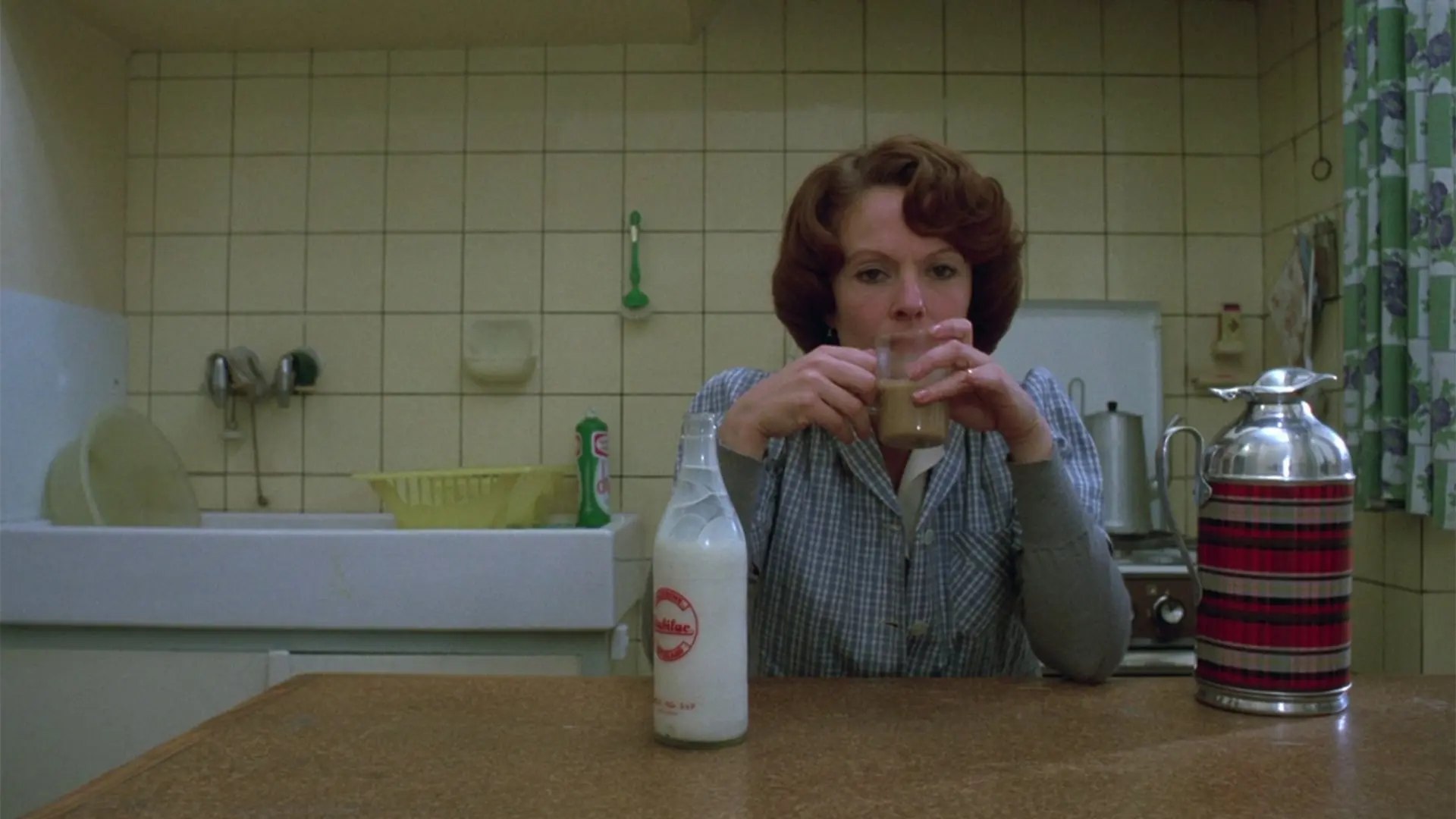I had the privilege of watching Jeanne Dielman, 23 quai du Commerce, 1080 Bruxelles on 35mm at the Somerville Theater as part of IFFBoston’s Sight & Sound series. While the nearly 50 year old print is clearly showing its age, the colors were magnificent.
For some background, Sight & Sound, a British film magazine, polls critics on their personal top 10 films every decade. Citizen Kane has won nearly every time. In 2012, however, Vertigo took the top spot, forcing its rival to second. All eyes were on the 2022 poll - would Citizen Kane retake its place on top, or would Vertigo defend its new title?
However, to everyone’s surprise, Jeanne Dielman, 23 quai du Commerce, 1080 Bruxelles, rose to the number 1 spot. It is about a housewife doing housework. It is nearly 3 and a half hours long.
Jeanne Dielman the film, as well as its spot as the greatest film of all time, is a contradiction.
The former film known for dominating that title, Citizen Kane, was often defended for the techniques it implemented and pioneered. Jeanne Dielman, then, is defined by the techniques it omits. The camera is always static, focus never shifts. There are no special effects. There is no elaborate costuming. There is no score.
There’s barely dialogue. In its 3.5 hour runtime, there are approximately five interesting conversations - there are perhaps around fifteen total, the other ten being one or two lines, max. (There are so few characters and conversations that, despite being overtly feminist, the film does not strictly pass the oft-cited Bechtel test). There is sound work, the sets are miked, but the film is mostly ‘silent’ - about 90% of scenes contain no dialogue.
In an age where streaming dominates, I sat in a room with 4-5 dozen strangers for 3.5 hours to watch a woman do chores, light shining through celluloid. We, together, watched a film about doing housework rather than, perhaps, doing our own housework.
In a year when there is excessive chatter about decreasing attention spans, in an era when the superhero movies dominating the box office get faster paced, the ‘new greatest film ever’ is exceptionally slow. As an example, you watch the eponymous Jeanne Dielman wash the dishes, on two occasions, in real time, with no cuts. (The dish sequence is especially egregious as the camera is positioned directly behind her. Her body obscures the view of the sink, depriving you of the pleasure of even seeing the event; you are only permitted to view the dishes periodically being loaded onto the drying rack).
To watch the film ‘in the background,’ however, would ruin the impact it has. The ‘destination’, the film’s ending, is only meaningful because of the journey that it took to get there. The film is a death by 1000 paper cuts; it details every straw on the way to breaking the camel's back. It contains all of those straws, but it does not neatly ‘present’ them to you. Jeanne Dielman is a puzzle, it is 100 hours of footage a private detective combs through to find 30 seconds of evidence.
At its best Jeanne Dielman is meditative and hypnotic. Watching these mundane tasks with no distraction forces one to notice every detail, to find those hidden straws. Likewise, the exposure to the protagonist allows me to feel closer to Jeanne Dielman than perhaps any other character in cinema. The apartment, in the same vein, stays in my memory as if it was a place that I used to inhabit.
One of the director’s principles when making the film was creating an ‘epic’ about an ordinary person, a woman, a widowed housewife. She wanted to show that it wasn’t just figures like Ben-Hur and Lawerence of Arabia that deserved films, but that a woman living a humble life in a humble apartment was worthy of the celluloid that she was printed on. It is, undoubtedly, a feminist masterpiece. The emotions conveyed in the film are universal.
The film is the best example of “show, don’t tell” that exists. The film does not tell you anything, yet shows you all you will ever need to know.
Streaming dominates film distribution, but I believe that this film greatly benefits from a theater experience, simply due to the elimination of all distractions if nothing else. (Plus the colors on the 35mm print I saw really were fantastic, even when compared to the Criterion release). So sit in a room with 4-5 dozen strangers to watch a woman do chores for 3.5 hours, projected by light through celluloid. It will be a good experience.
